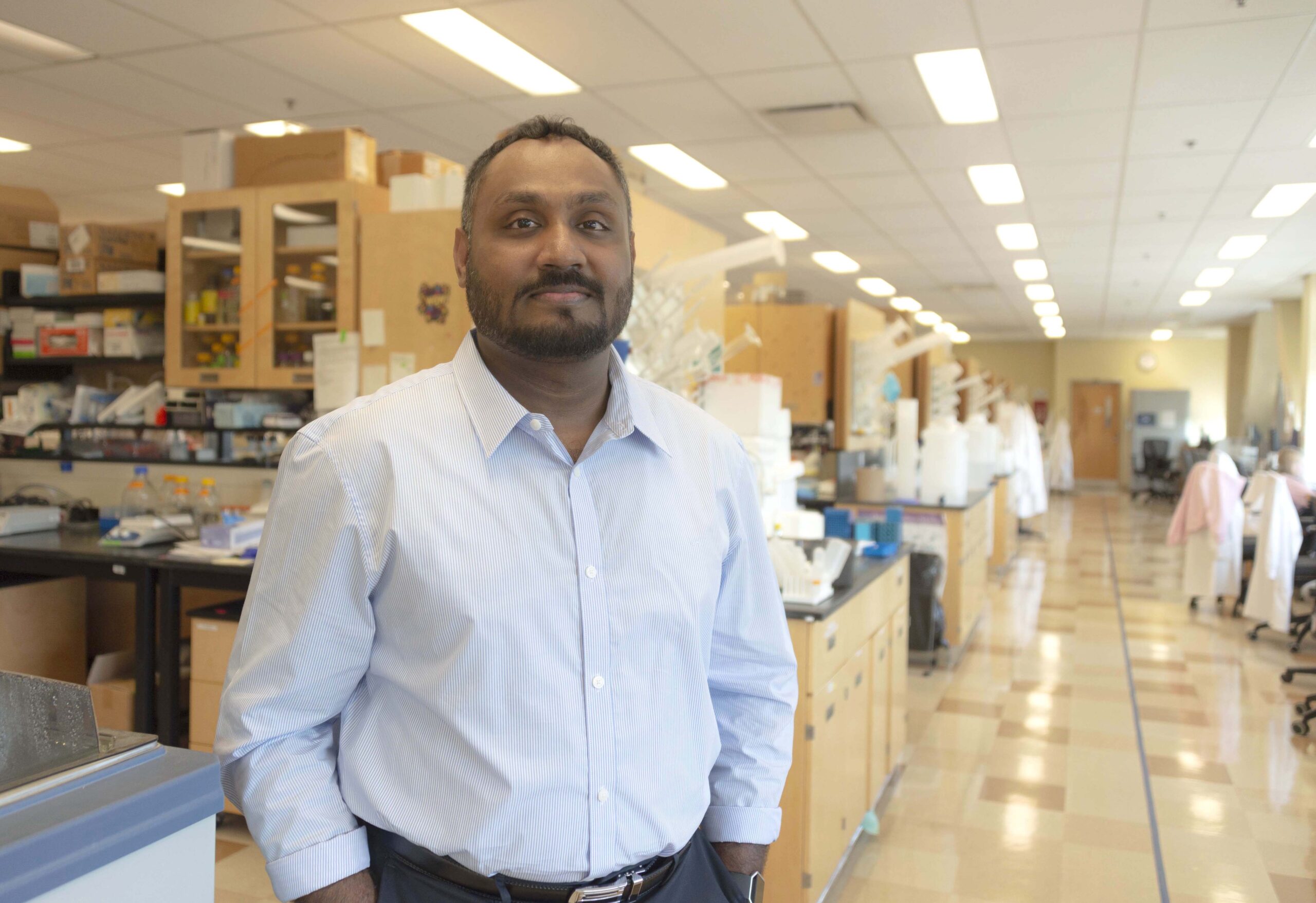Meet Dr. Sujeenthar Tharmalingam: molecular biology researcher at NOSM University
Posted on October 17, 2024
When Dr. Sujeenthar Tharmalingam is asked about his work, he says he’s been told that perhaps he does a little too much.
He runs a molecular biology lab at NOSM University where he supervises about 20 people from graduate students to post-doctoral fellows, and research assistants.
His wide range of projects includes research in molecular biology, cancer biology, radiation biology, clinical research and diagnostics, and applied microbiology.
“I like to do cutting edge research,” he says. “What drives me really is to be able to do research that can change our human health. That is the priority for me.”
Some of this research to improve human health in the North includes developing point-of-care diagnostics tools for oral candidiasis (thrush) infections, using probiotics in the management of type II diabetes, and studying biomarkers for therapy-resistant breast-cancer.
Dr. Tharmalingam is quick to point out that he does not work alone, but rather with a team of other researchers across Northern Ontario. He credits his collaborators across different fields and the supportive research community for his ability to achieve so much. For his radiation biology research, he works with NOSM University faculty including Drs. Chris Thome, Douglas Boreham, T.C Tai and Simon Lees.
In 2023, they received an Alliance grant from the Natural Sciences and Engineering Research Council of Canada (NSERC), valued at $1.5 million over five years to study the effects of radon on human health.
Earlier this year, Dr. Tharmalingam—working with Dr. Vasu Appanna at Laurentian University—received another NSERC Alliance grant of $600,000 for an applied microbiology project. This study is looking at more efficient and environmentally friendly methods of mining gallium, which is an important element in the production of semiconductors.
Dr. Tharmalingam describes these two grants as one of the biggest achievements in his career to date. These grants give his team the flexibility to continue working on cutting edge research for the next few years.
In addition to his microbiology and radiation biology work, he also does clinical biology research with Health Sciences North (HSN) Sudbury Drs. Debra Saunders and Ravi Singh to improve treatment outcomes for patients with oral candidiasis—a fungal infection that can cause severe pain and lead to death in extreme cases.
In Northern Ontario, about 10-20% of palliative patients are resistant to the standard treatment, an antifungal medication called fluconazole. There is currently no way for doctors to determine which patients would be resistant.
Dr. Tharmalingam and his team of collaborators are working to understand the genetic factors underlying the resistance and to develop point-of-care diagnostic tools that will let doctors know in about 30 minutes if the patient will be resistant to an anti-fungal without waiting weeks.
“The ultimate goal is to improve patient outcomes. We’re trying to increase the therapy effectiveness for oral candidiasis patients and improve their quality of life,” he says.
They are currently planning to start clinical trials in 2025.
Passionate about collaborating with other researchers to achieve goals and move health research forward, Dr. Tharmalingam hopes to bring in new students and researchers to continue improving health care for people across the North.
“What we try to do is lend our expertise to different projects in Northern Ontario,” he says.

